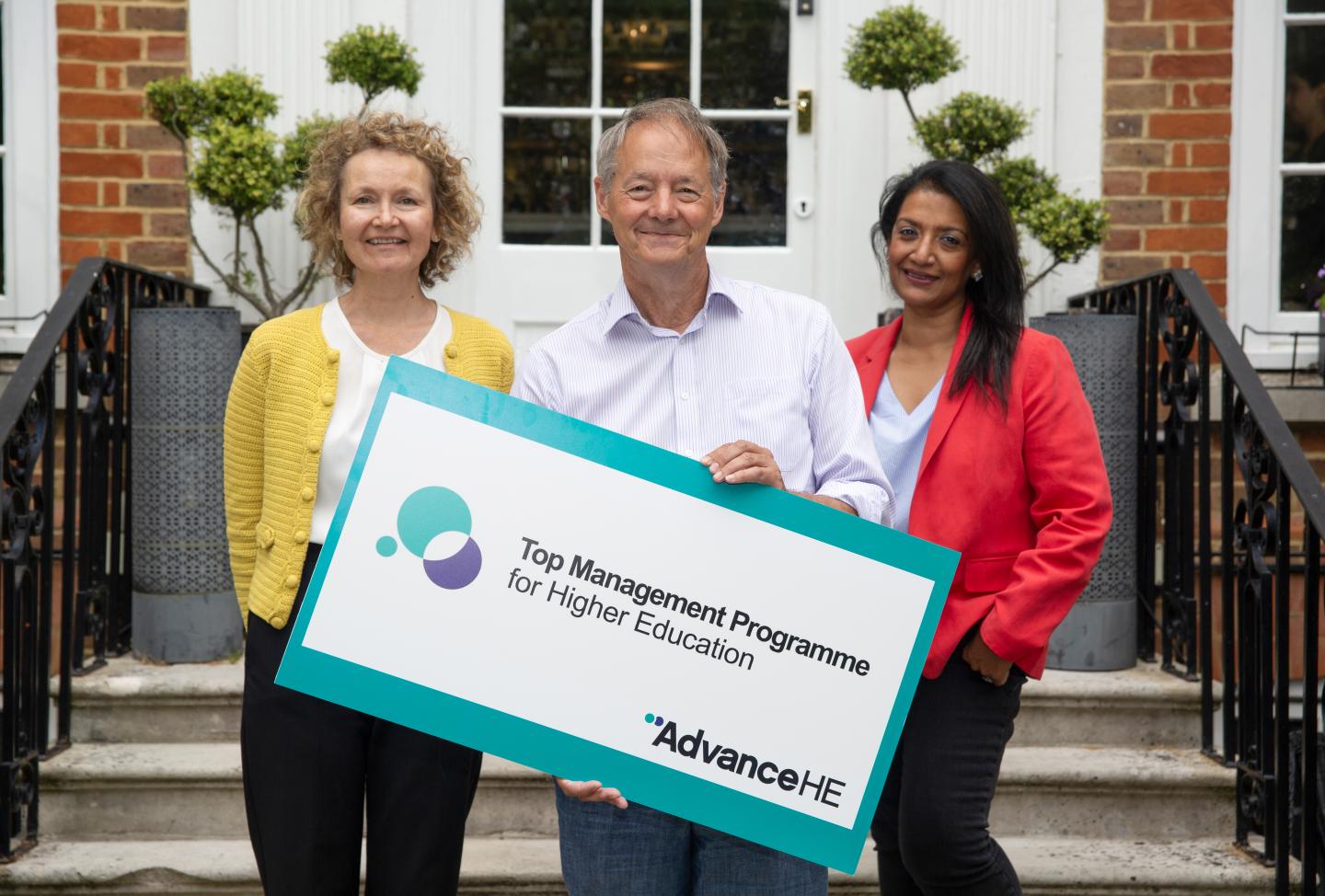Last year Advance HE invited me back to work on TMP Cohort 50 after a five-year gap since my previous experience of working with 10 cohorts as a Programme Director.
I was intrigued to discover what had changed.
The Programme had been up against the challenges - all too familiar to the higher education sector - of adapting to an online format during the pandemic, then to hybrid and finally re-emerged in 2022 in a face-to-face format, with buoyant pent-up demand from leaders keen to work together in person.
Institutions transitioning
Still in 2023, some institutions are grappling with the transition from the command-and-control management of lockdowns in 2020 and 2021 to a world of dispersed leadership and co-creation demanded by the global challenges to which universities must now respond. The need for the kind of reflective, experimental space provided by TMP has never been more acute.
TMP50 in 2022 had the feel of a celebratory ‘special edition’: an opportunity to reunite with team colleagues Vijaya Nath and Louisa Hardman and to work with 24 senior leaders from across the higher education sector in the UK, Ireland, Italy and Australia.
TMP more immersive
So, what have I discovered? I’ve found that TMP is now more immersive and experiential than ever. It builds networks among participants that are dynamic and open, created around shared moments of challenge and breakthrough. The activities on the programme model practices that are transferable into leaders’ work in their institutions.

TMP excels at building trust through openness and disclosure. It demonstrates leaders’ vital role in stimulating a learning orientation in individuals and in nurturing a climate of development in teams.
It's a moving experience to facilitate a programme where members of a TMP cohort become committed to fostering cultures in which social purpose and human fulfilment are valued and enhanced.
We do this through weaving thematic strands through the programme which are illuminated by a range of guest contributors who engage in intense conversations with our participants. On TMP50, we worked with 10 Vice-Chancellors and four Chairs of governing bodies from across the higher education sector. We were challenged by innovators and disruptors on our practices in EDI, working with governing bodies, alternative delivery models, and engaging with unions.
Focus on presence
TMP achieves its outcomes through a constant focus on repertoires of behaviour and language which can be developed by senior leaders. One session which acts as a powerful catalyst in this respect is with expert directors from the National Theatre, whose focus on presence, engagement and influence is revelatory for participants.
I found that in the five years since I’d been away from TMP, the programme team had strengthened its focus and impact. We’re now thinking about where next for the experience we co-create with future cohorts?
In the permanently challenging times we now face, it will be crucial to embed and integrate the wicked problems for universities in addressing social injustice, climate emergency, sustainable regeneration and all forms of inequity, and to ensure that our international engagement provides a truly immersive and provocative experience.
Global South provides template
One way we might approach this could be through learning from universities in the Global South. Many of these institutions are reimagining the role of the university in order to better support their local areas through innovation, partnership and collaboration. As we look forward to TMP52, their approach could be offer a rich and rewarding template for institutions elsewhere to study and perhaps even emulate.
Integral to the success of TMP is its continual evolution in tune with the issues faced by current and future leaders – I am confident we as a facilitation team pay attention to this and I look forward to continuing to co-create and iterate TMP with them and our delegates.